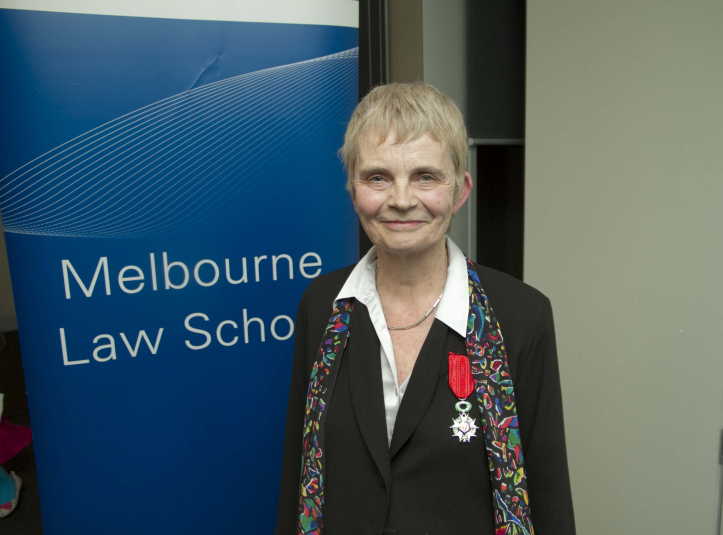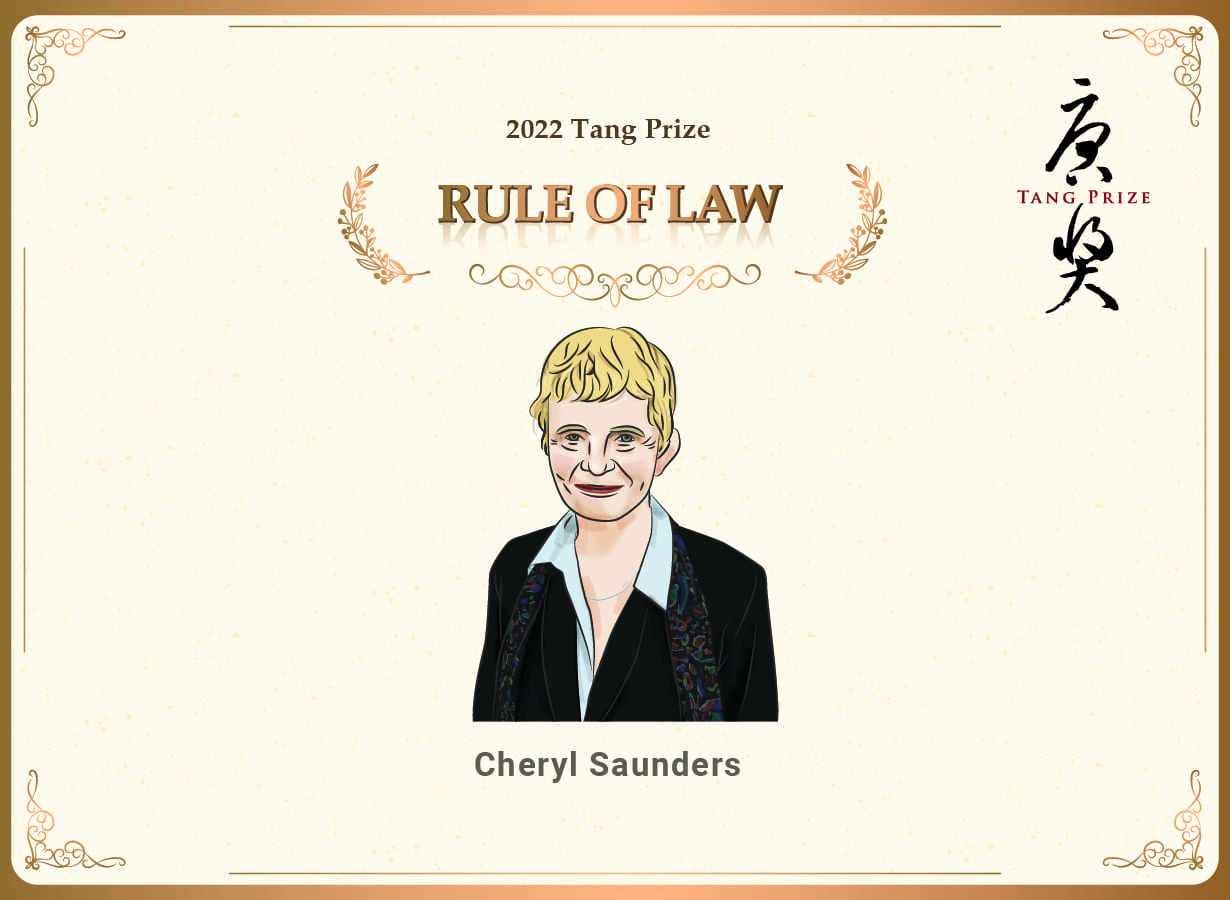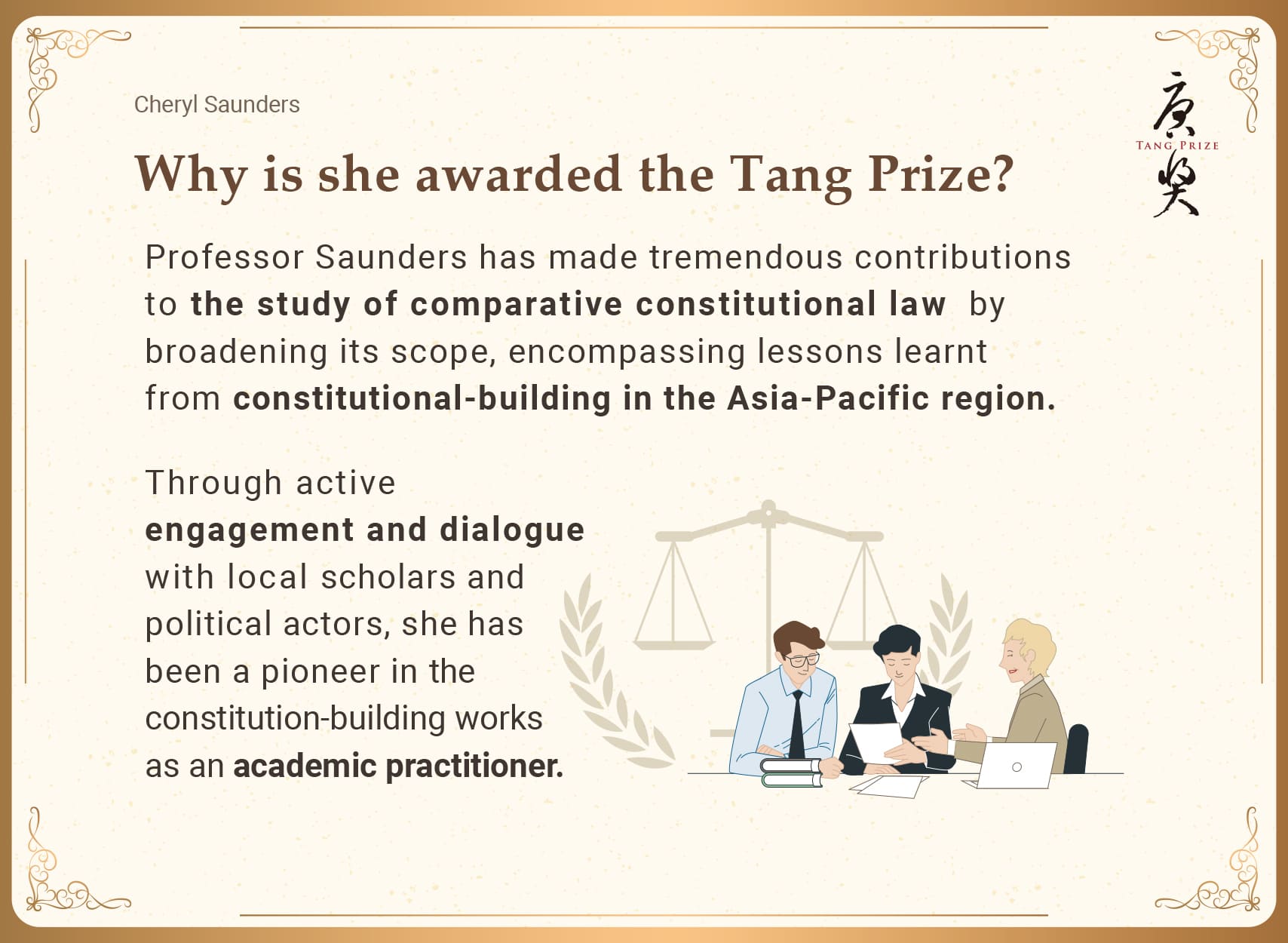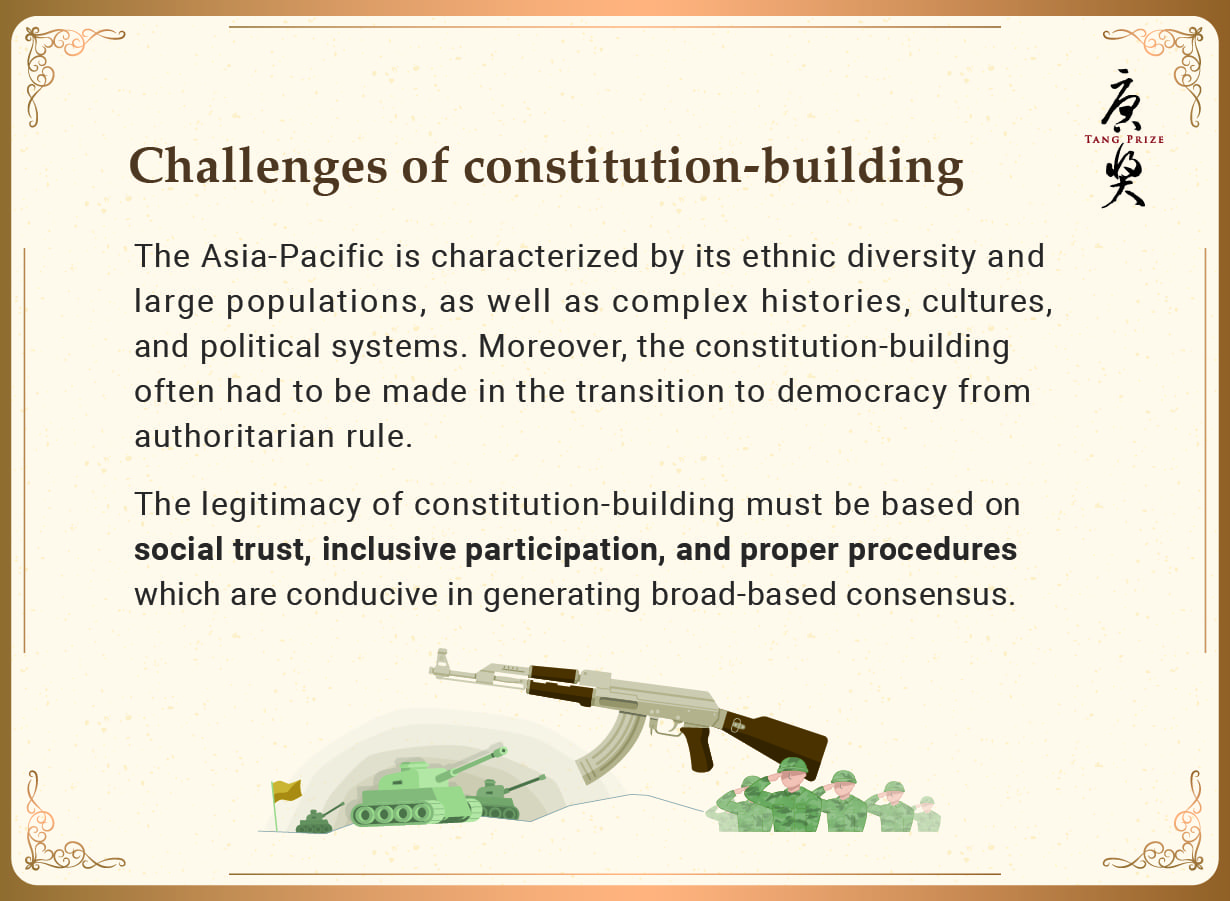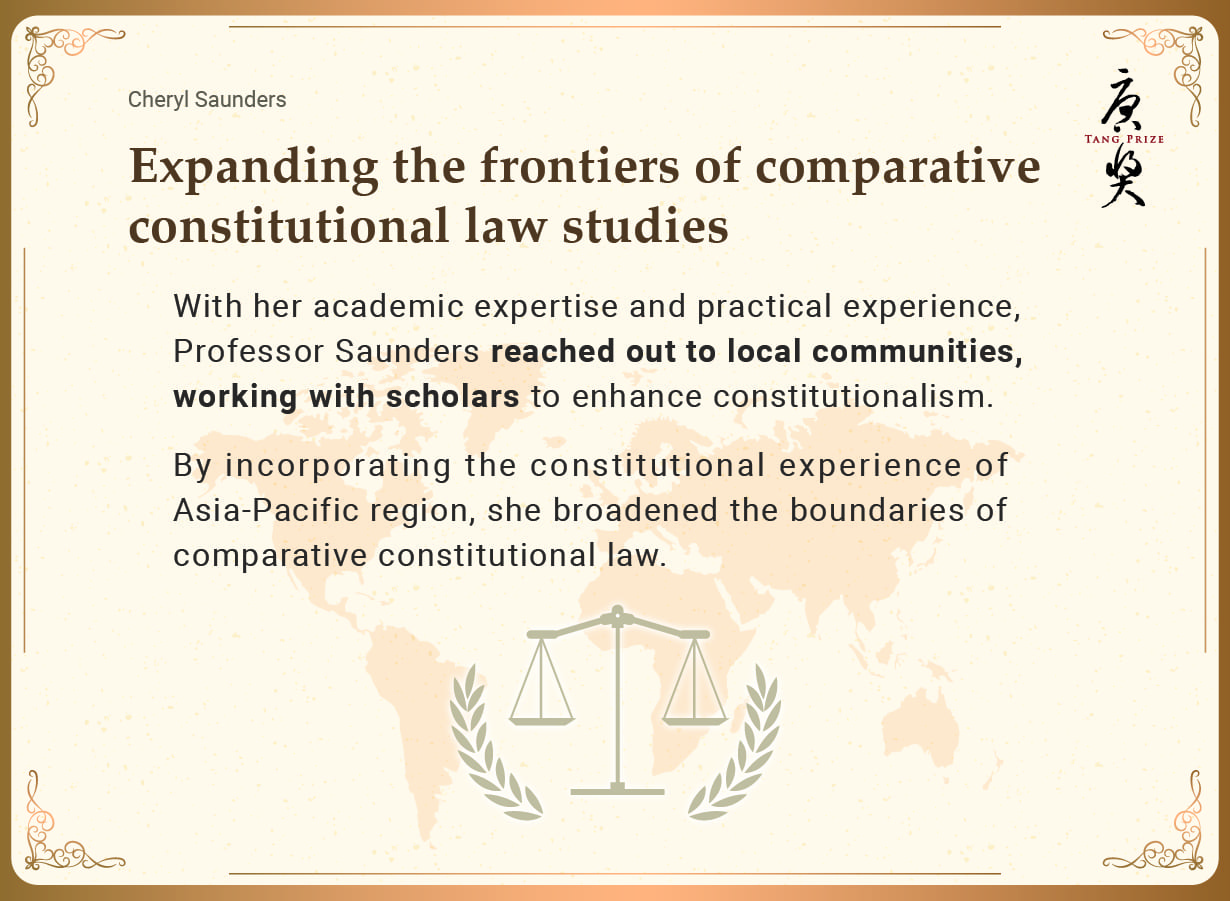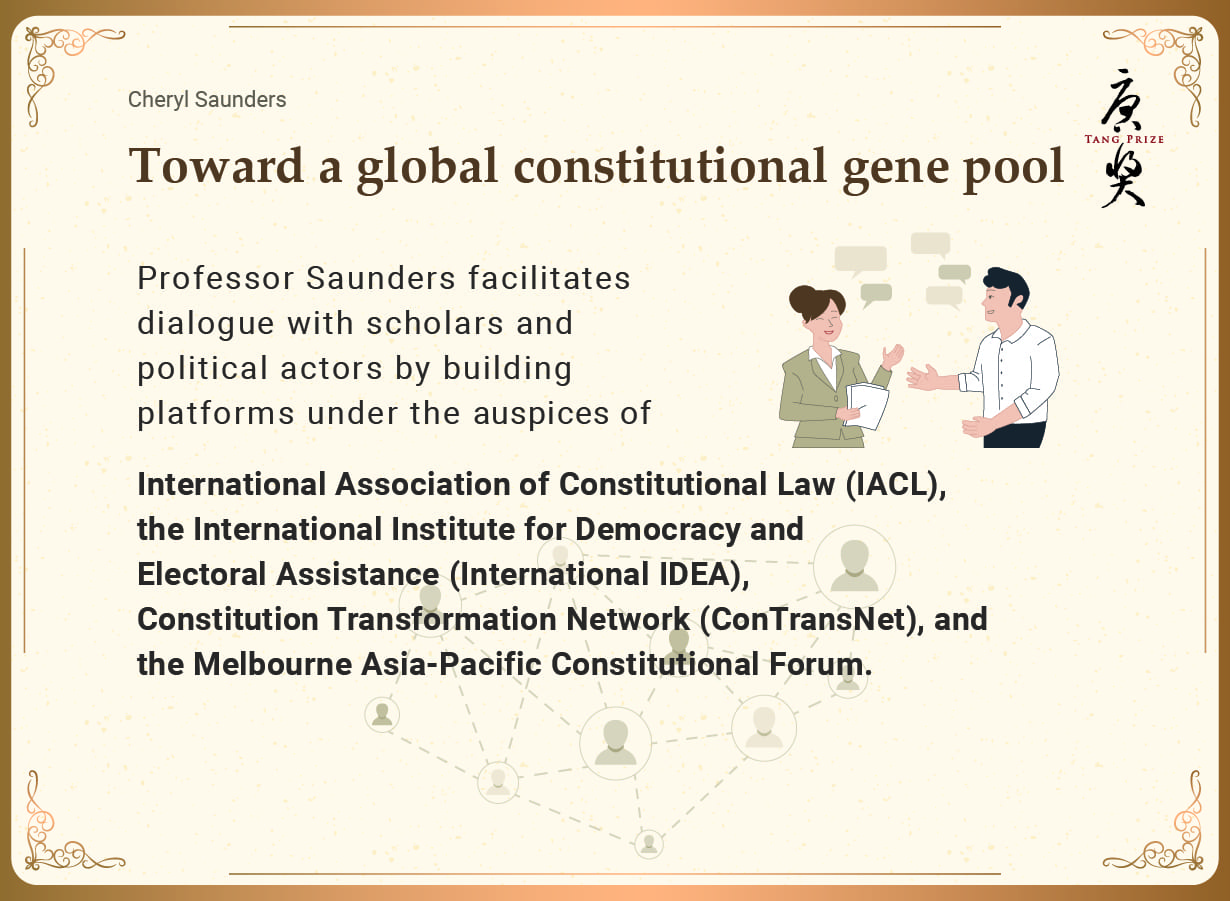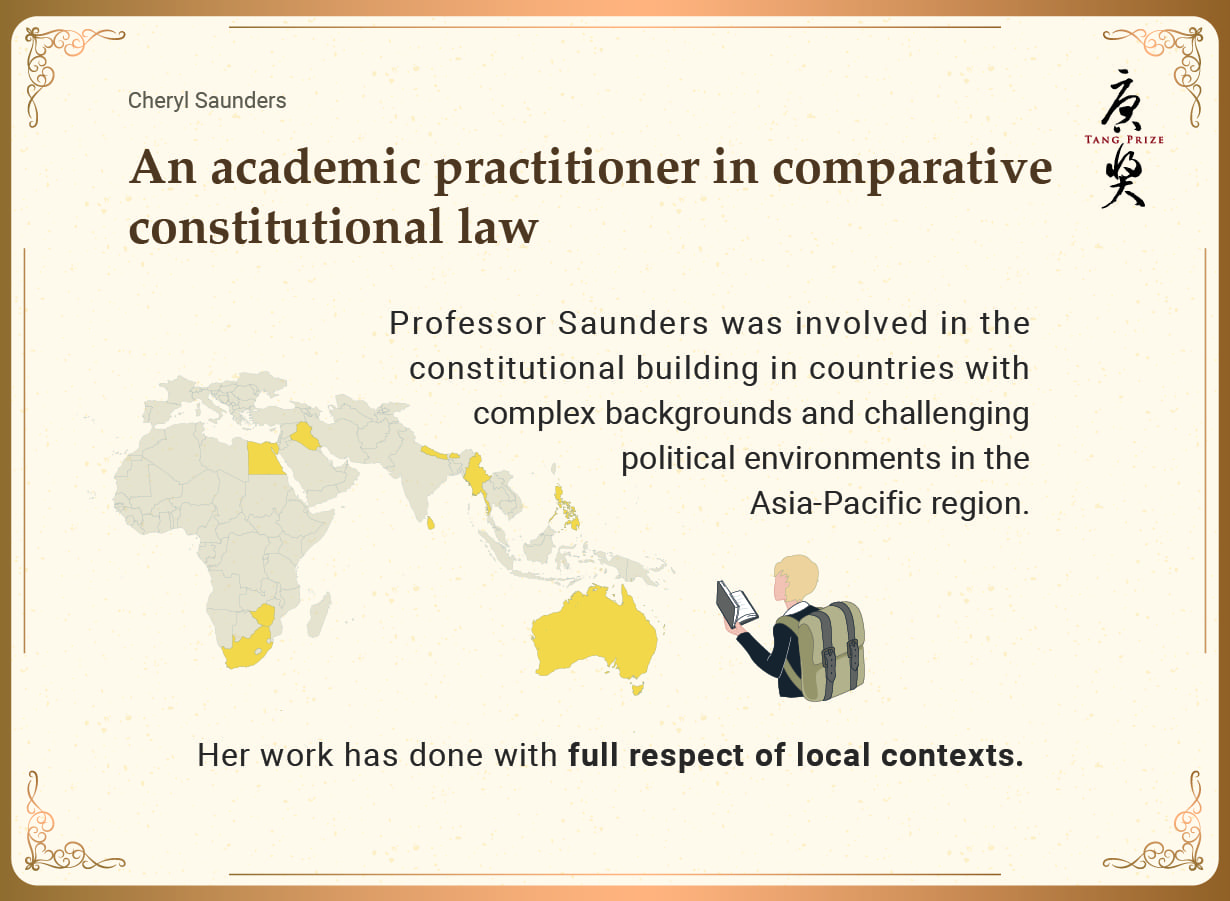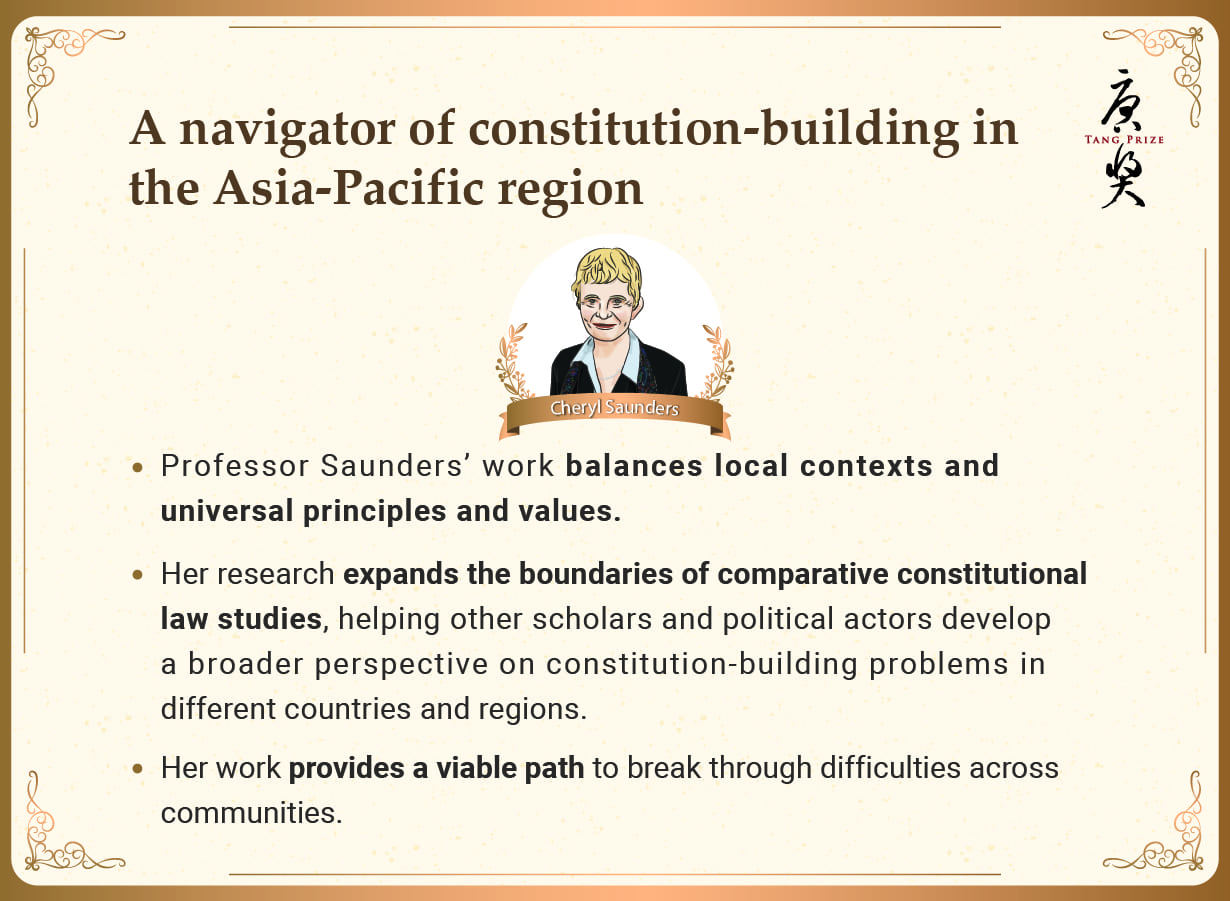2022 Tang Prize in Rule of Law is awarded to Prof. Cheryl Saunders to recognize “her pioneering contributions to comparative constitutional law, and in particular her work on constitution-building in the Asia-Pacific region”. In the citation, the Selection Committee paid tribute to her working methods, noting that she applies “her scholarship to inspire and advise constitution-making exercises, often under challenging circumstances”, and that she “consistently broadens the boundaries of comparative constitutional law scholarship through active engagement, dialogue and collaboration with scholars and political actors at home and abroad.”
Prof. Saunders was born in today’s Quetta, Pakistan, and settled in Australia when she was five years old. From a university student to a university professor, the progression of her life has always been closely associated with the University of Melbourne, where she become the first woman to be appointed a law professor and where she founded the Centre for Comparative Constitutional Studies in 1988. Later, she served as associate dean of Graduate Studies of Melbourne Law School, and Melbourne Law Masters. An elected fellow of the Academy of Social Sciences in Australia and the British Academy, Prof. Saunders has been made an officer of the Order of Australia, awarded the Australian Centenary Medal and Légion d'Honneur of France, and granted an honorary doctorate from the National University of Cordoba. Currently, she is Laureate Professor Emeritus at the University of Melbourne.
Prof. Saunders is not only a pioneer in comparative constitutional studies but also an academic practitioner. Always taking great interest in constitutional law, she was early to develop a passion for the emerging but often undervalued discipline of comparative constitutional law. In 1988, she set up the Centre for Comparative Constitutional Studies to increase the international reach of this discipline, an effort that, when she reminisced about it, allowed her to begin “to realize how fascinating [comparative constitutional law] was and how comparative work could shed light on way that we all do things, including in Australia.” Prof. Saunders places special emphasis on an inclusive approach to comparative constitutional studies, advocating for incorporating constitutional experience from all over the world into our thinking, which broadens the vision of studies of comparative constitutional law beyond focusing on developments in Europe and North America.
Her commitment to comparative constitutional law became the impetus behind her engagement in the making and implementation of constitutional change in the Asia-Pacific region and in other parts of the world. These activities in turn broadened her understanding of constitutional experience around the world and gave her insights into how comparative constitutional knowledge can most usefully be shared. From the 1990s onwards, she was involved in constitution building and other related constitutional discussions in a wide range of regional countries including Fiji, East Timor, Myanmar, Sri Lanka, Nepal, the Philippines and Bhutan. In some of these cases, constitution-building was taking place in the most challenging of circumstances, involving transition to democracy from authoritarian rule. In all of them, the issues raised were difficult and important for the wellbeing of the people of the country concerned.
The 1990s also witnessed Prof. Saunders’ involvement with the International Association of Constitutional Law (IACL), an academic association with an aim to provide a platform for the exchange of constitutional knowledge and issues for constitutionalists across the world, and to offer a pool of experts from which teams might be constructed to examine and provide advice on particular issues. Under IACL’s auspices, she had opportunities in observing the constitutional changes ensuing the fall of the Berlin Wall close-up. Later, upon taking up the presidency of IACL in 2004, Prof. Saunders demonstrated her commitment by equipping herself with French to ensure her role “genuine global”. Her leadership in the IACL has been remarkable, as testified by many who were involved in constitutional changes in Africa, Asia and Latin America in the following decades.
Prof. Saunders’ engagement in constitutional-building assistance extended to other platforms such as International Institute for Democracy and Electoral Assistance (International IDEA), with which she has worked for many years, in many parts of the world, including the Middle East and North Africa. In recent years, with colleagues at Melbourne Law School, she founded the Constitution Transformation Network (ConTransNet) to explore both theoretically and practically the role of constitutions in the current age of global interaction and how constitutions can be made and changed in ways that support their practical effect. The two platforms joint forces in her organizing of Melbourne Forum on Constitution Building in Asia and the Pacific, which has been dedicated to explore themes of constitution-building in the said area from a broad basis of participation.
The Asia-Pacific is characterized by its ethnic diversity and large populations, as well as complex histories, cultures, and political systems. While often overlooked in the past, its significance to the rest of the world is only growing as the region increasingly becomes the center of the global economy and geopolitical strategy. From the outset of her long engagement with comparative constitutional law, Professor Saunders has explored how the concept of constitutionalism is put into practice globally and locally, and has sought to pinpoint the challenges facing the working of contemporary constitutional orders. In addition, Prof. Saunders carefully analyzes the formal constitutional changes recently taking place in countries in East and South East Asia, the Pacific island states and elsewhere, documenting the implementation of constitutions, the challenges they confront and the insights they offer in a region readily distinguishable from the West by its unique culture, history, and circumstances.
Prof. Saunders’ work is characterized by collaboration with networks of experts and scholars in the Asia-Pacific region and elsewhere, bringing community-based talents along the road. Constitution-building can be a tortuous journey in which progress is met with setbacks. Through applied knowledge and experience, Prof. Saunders has learnt the importance of prioritizing both national ownership and fit with local context, in the interests of effective implementation. Prof. Saunders always shows full respect for the culture and customs of communities and grassroots decision-making. To make comparative insights useful, she prefers to work with local scholars and practitioners, in workshops and forums, to identify priorities, issues and options from a local perspective. She has made considerable contributions to countries in the Asia-Pacific and elsewhere in terms of assistance with constitution-related problems and has inspired people who want to change society through constitutional reform.
